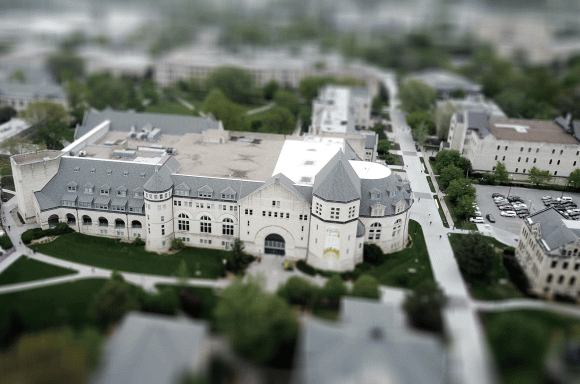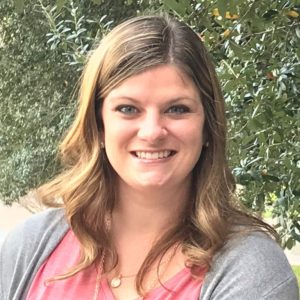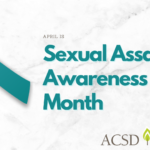Krakauer, J. (2015). Missoula: Rape and the justice system in a college town. New York: Doubleday.
WARNING: The content of Missoula is explicit. Transcripts from criminal trial proceedings within the book describe graphic details of rape. At times, profane and vulgar language is used. If you plan on reading Missoula, please be aware.
Confession—I’m a huge fan of Law & Order: SVU. For me, it’s all about seeing justice served. Despite the episodes where the perpetrator gets a verdict of “not guilty,” I still see a group of New York detectives and prosecutors seeking justice for victims of sexual violence. However, the characters in crime shows are fictional.
In Missoula, Jon Krakauer details reals stories, events, criminal proceedings, and verdicts of college women at the University of Montana in Missoula who lived the reality fictionalized in a Law & Order episode. The gritty and horrific details accounted by young college women who experienced violent sexual assault (including rape) by men they trusted as friends and the appalling response from university officials and the judicial system should urge us as Christian student affairs professionals to better serve our students who have been traumatized by sexual violence.
In my reading of Missoula, there are eight lessons that I believe we can learn from what happened at the University of Montana that should influence our practices regarding responding to students who have experienced sexual assault.
1. CRIMINAL PROCESS
We must become more knowledgeable about the criminal process of pursuing charges for sexual assault. (This is where your Law & Order knowledge will fail you.) With the plethora of crime shows on TV these days, many of us might feel we have a minimal understanding of how a criminal trial proceeds. Or, you might think that the criminal route is similar to the institutional Title IX investigation route. In some ways, perhaps, yes, they are similar. However, there are some major differences that in order to help students who are interested in pursuing the criminal route, we need to understand. For example, the criminal route requires a different standard of evidence from the plaintiff as opposed to the most commonly used burden of proof for institutional Title IX cases. The legal system requires a clear and convincing standard of evidence (i.e., beyond a reasonable doubt, 95%), whereas most colleges and universities only require preponderance of the evidence (i.e., more than likely, 50.1%) as a standard. I don’t make this point so that we can dissuade complainants from pursuing criminal charges. Far from it. However, I believe victims of sexual assault should be provided with all of the facts regarding the difference between a Title IX investigation at their institution and a criminal trial. Knowledge is power; rape is a crime about power, not sex. Thus, empowering victim’s with knowledge helps give them back something that was taken away from them.
2. UNIVERSITY RESPONSE TO VICTIMS
It pained me to read the responses of Missoula administrators to victims reporting an incidence of sexual assault. Krakauer vividly depicts the biases of the university in Title IX cases towards well-known star athletes. In the case regarding Jordan Johnson, an accused perpetrator, the university determined to expel Johnson, but provided four opportunities to appeal. The victim, on the other hand, was afforded no opportunity to appeal Johnson’s readmittance to the university. Our actions, or inaction, speak volumes to the victims that walk into our offices—about who we believe, who is credible, who is valued, and what we care about most. Victims want to be believed, validated, and listened to. Surely, we can do that.
3. RELATIONSHIP WITH LOCAL POLICE
Missoula reveals a range of conflicting reactions by local police to victims who reported their assault. For one young woman, Allison, the detective working her case demonstrated care and empathy in his interactions with her. For other victims such as Kerry, the police’s response is less-than-satisfactory. Krakauer even describes one incident where a police officer was quoted saying to a victim: “sometimes girls cheat on their boyfriends, and regret it, and then claim they were raped” (p. 60). Building positive relationships with the local police can help the university to better understand the process, know who to connect victims with that will provide support and care through the criminal process, and promote a more collegial working relationship and information sharing (when appropriate) with law enforcement.
4. COUNSELING
Krakauer’s work emphasizes the critical work of mental health services for victims in particular, but for the respondents and witnesses as well. Missoula demonstrated how common it is for victims of sexual assault to withdrawal from school and experience depression and anxiety. Over the last decade, the stigma around mental health issues has decreased, causing an influx of students seeking counseling services on our campuses. In order to best serve our students, our campuses must continue to devote resources and support services for mental health issues as these are not going away anytime soon.
5. IDOLATRY
Although most Christian colleges aren’t competing in the Power 5 Conferences, Missoula highlights the darker side of athletics—idolizing teenagers with athletic talent. The University of Montana had made gods out of their star football players and winning football team. These young men obviously developed an “I’m untouchable” complex, riddled with privilege and entitlement. And just because they were playing at the top tier doesn’t mean the same thing can’t happen on our small faith-based campuses—or anywhere for that matter. We need to consider the attention to, pressure on, and praise given to any student in leadership or the spotlight. There is nothing wrong with celebrating talent and having high expectations, but when it turns to idolatrous behavior and a sense of entitlement, we have work to do.
6. FALSE RAPE ALLEGATIONS…UNLIKELY
Sadly, false rape allegations continually are used as the most plausible explanation for a report of sexual violence against anyone who is well-liked. Krakauer makes a point to address this misguided notion in his work, citing Lisak et al.’s highly-regarded article from 2010 in Violence Against Women (a leading journal on sexual assault) as finding the false allegation statistic to be from 2-10%, not the outrageous 50% as claimed by one of the police officers (sourced from a disreputable article in a periodical) questioning Kerry when she reported, as “He’d asked her if she had a boyfriend, because he took it for granted that women commonly lied about being raped” (p. 116). False rape allegations are the exception, not the rule. Let’s stop assuming that a false report is the most probable explanation to a surprising perpetrator reported.
7. CAMPUS CLIMATE
Missoula is not the only recent non-fiction piece that depicts an institutional culture that responded poorly to victims of sexual assault. Moreover, Christian institutions aren’t exempt from this accusation. No doubt, Baylor (where I’m working on my PhD) has been at the forefront of this criticism within the Christian community. We as student affairs practitioners need to focus on cultivating a campus environment that encourages reporting of sexual assault and educates for bystander awareness. Our campuses cannot continue to accept sexual assault or other inappropriate behavior as part of adolescence, college ritual, or tradition. Every person as imago dei has the right and inherent value to be treated respectfully and not to have their identity as male or female hinder their educational experience, especially at a Christian institution.
8. FOCUS OF INVESTIGATION
During a university investigation, many institutions have been accused of victim-blaming lines of questioning. Certainly, as was the case in Missoula, police officers have also been guilty of questions or phrases that insinuate blame on part of a sexual assault victim. Questions or phrases such as “were you drunk?” or “what were you wearing?” can cause a victim to question if the investigator believes the victim “asked” for the assault to happen through his or her actions. While still collecting the facts of the assault, let’s instead demonstrate to victims that we care more about why the perpetrator committed the crime rather than that the victim was wearing something some might call “provocative” or “slutty.” That’s a different conversation for a much different time and to be facilitated by a different person.
From engaging in and listening to the stories and accounts of sexual violence survivors, we as student affairs practitioners can develop a deeper understanding of a victim’s journey through survivorship and, thus, be better prepared to support and care for our students affected by unspeakable violence on their very personhood.







